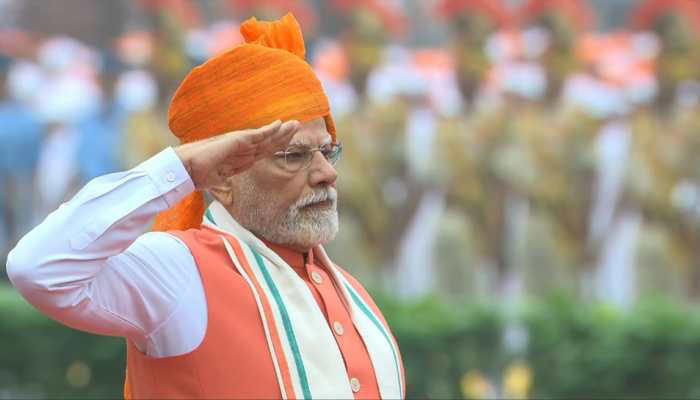PM Modi from Red Fort: “This Diwali, the Nation Will Receive a Big Gift” — Hints at GST Overhaul with ‘Next-Generation’ Tax Reform

PM Modi from Red Fort: “This Diwali, the Nation Will Receive a Big Gift” — Hints at GST Overhaul with ‘Next-Generation’ Tax Reform
Industry, consumers, and MSMEs eye relief as government considers major rate cuts
In a significant policy signal, Prime Minister Narendra Modi has announced that the government will introduce a “next-generation GST reform” as a festive season gift for the country, sparking speculation about a major rationalisation of the current multi-slab goods and services tax (GST) regime. The announcement, made during his Independence Day address from the Red Fort, has raised hopes that consumers and small businesses could see meaningful tax relief before Diwali.
Modi emphasised that the GST system, first rolled out in 2017, had simplified indirect taxation in India but was now due for a comprehensive review. “We are bringing ‘next-generation GST reform,’ it will be a gift on Diwali. Tax on common, individual services will be reduced significantly… MSMEs will benefit, it will also help the economy,” he said. He also underscored the importance of self-reliance and urged traders to promote indigenous goods in their outlets.
The present GST framework, with rates at 0%, 5%, 12%, 18%, and 28%, has often faced criticism for its complexity, compliance burden, and uneven treatment of essential goods. Critics argue that several household staples attract disproportionately high tax rates, placing additional pressure on consumers, particularly in smaller cities.
What Could Change?
Government sources indicate that one of the key proposals under consideration is the abolition of the 12% slab, potentially moving many essential goods—such as ghee, soaps, packaged snacks, and other daily-use items—into the 5% category. This reclassification would directly lower retail prices for millions of households.
Industry associations and consumer groups have also called for reducing the number of slabs, easing filing requirements, and lowering rates on basic services. Officials suggest that these demands are being weighed ahead of the next GST Council meeting later this month, ensuring any changes can be implemented before the festive shopping period.
If the changes go through, analysts believe the reform could help contain inflationary pressures, stimulate consumer spending, and provide a boost to micro, small, and medium enterprises (MSMEs), especially in tier-2 and tier-3 cities. The timing, just ahead of Diwali, is likely to amplify the economic impact by encouraging higher demand in retail, manufacturing, and services.
While the specifics of the proposed GST restructuring remain under wraps, the combination of lower taxes, fewer slabs, and simpler compliance norms could mark one of the most significant overhauls of India’s indirect tax system in recent years.












